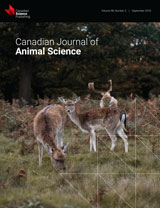Abstract: Three hundred and sixty Hubbard broiler eggs were divided into two equal groups. In the first group, eggs were incubated at 37.5 °C for up to 19 d, while those in the second group were incubated at the same temperature except for 3 d (days 6, 7, and 8) when they were exposed to 40.0 °C for 3 h each day. Eggs were equally classified into three ascorbic acid (AA) treatments. The first one was sprayed with distilled water (control), while the second and third treatments were sprayed with same solution but containing 20 and 30 g AA L-1, respectively.
The highest embryo weight (EW) per gram and lowest yolk sac weight (YSW) per gram were obtained in the chronic group (P ≤ 0.05). Embryonic mortalities were significantly (P ≤ 0.05) increased, while hatchability was significantly decreased in the chronic group compared with the control group. Chick weight (g) and glucose and triiodothyronine (T3) levels were significantly lower (P ≤ 0.05) in the chronic group compared with the control group. The heterophil–lymphocyte (H/L) ratio was significantly (P ≤ 0.01) affected by incubation temperature.
Body weight (g) and percentages of liver, spleen, and bursa of Fabricius were significantly (P ≤ 0.05) lower in broilers in the chronic group compared with the control group. Referring to AA treatment, EWs (g) were not affected, whereas YSW per gram, packed cell volume (PCV) (%), red blood cells (RBCs) (106), H/L ratio, and bursa percentage were significantly (P ≤ 0.05) affected.


